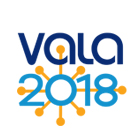

Natalia Fibrich
Translating disruption into action: next steps for a 21st century library service
VALA2018 CONCURRENT SESSION 12
Wednesday 14 February 2018, 15:20 – 15:50
Natalia Fibrich
Library Training Services Australia
Please tag your comments, tweets, and blog posts about this session: #vala2018 #s30
Abstract
Libraries need to update their structures, processes and behaviours, to ensure that they adapt and maintain agility in disruptive times. To facilitate adaptability, it is critical that library leaders understand the context (both internal and external) of their libraries, have effective leaders, a high-performing team, identify customer and non-customer needs, foster a positive organisational culture and facilitate an effective organisational strategy and design. This paper goes through each of these factors with the goal of helping leaders translate disruption into strategic and positive action, to ensure library and information services remain as relevant as they always have been to society.

This work is licensed under a Creative Commons Attribution-NonCommercial License.







